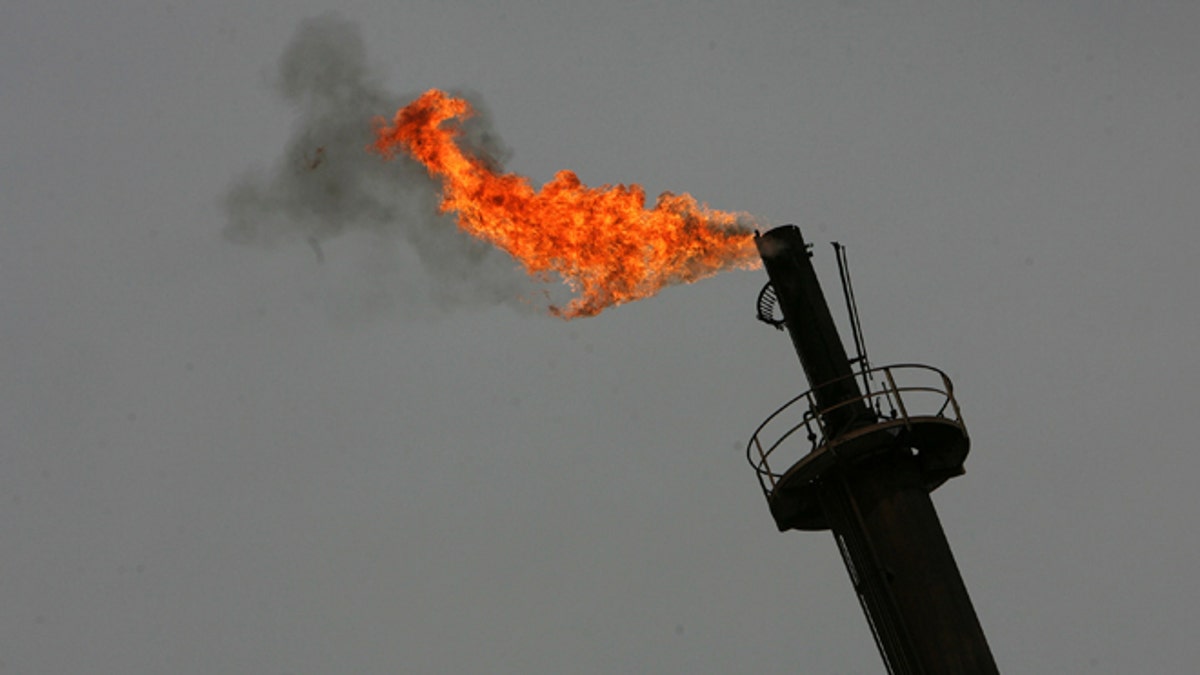
BAGHDAD, IRAQ - NOVEMBER 5: The Daura oil refinery is seen on November 5, 2009 in Baghdad, Iraq. Iraq and a grouping of U.S and European oil companies Exxon Mobil Corp and Royal Dutch Shell PLC signed a $50 billion contract today to develop the West Qurna oilfield, two days after the Iraqi South Oil Company signed a technical service contract with Britain's BP and China's CNPC to develop the Rumaila oilfield. The Iraqi government is trying to attract foreign investment, especially in the oil sector, in hopes of reviving its war-torn economy. Iraq has the third largest oil reserve in the world but it is producing way below its potential. (Photo by Muhannad Fala'ah/Getty Images) (2009 Getty Images)
Despite having the largest oil reserves in the world, Venezuela faces a severe shortage of gasoline, experts said.
Former high-ranking employees at Venezuela's state run oil company, Petróleos de Venezuela, S.A. (PDVSA), said that due to deterioration of its refinery system and the vast amount of fuel being smuggled out of the country, the government of President Hugo Chávez has to import fuel and components from the United States to fulfill contractual agreements and for consumption within the Andean nation.
The former PDVSA employees also worry that due to the inability to increase production, the Venezuelan government will take steps to ration gasoline such as the measure it took in the border state of Zulia, where it has placed chips in residents vehicles to measure the amount of gasoline they consume.
Protests have already arisen due to the measure and while the measure isn't as drastic as some believed, the former PDVSA employees believe it could be a sign of things to come.
This is a wrinkle the government will start running, first in order states, then a little further out to reach other states close to the border and, since there is a deficit in the system, we will end up seeing the wrinkle growing until everybody is under controlled consumption.
"As in every economy where everything ends up deteriorating, the way they fix it is by imposing quotas and controlling the people," said Juan Fernández, a former PDVSA's executive planning director, according to the Miami Herald. "That is what we are seeing with this alleged chip, which is nothing but a way to introduce a rationing quota system using contraband as an excuse."
"This is a wrinkle the government will start running, first in order states, then a little further out to reach other states close to the border and, since there is a deficit in the system, we will end up seeing the wrinkle growing until everybody is under controlled consumption," he added.
To boost oil production, $130 billion will be invested in Venezuela's Orinoco Oil Belt between 2013 and 2019 to boost national production from 3 million barrels per day to 6 million bpd, Chávez said earlier this week.
The investment program for that heavy oil region, the world's largest petroleum reservoir, is equivalent to roughly a third of the $383 billion the Treasury says it collected in taxes and royalties over the past 10 years.
Roughly $5 billion is to be invested this year, which will enable "production in the Belt to reach 1.35 million barrels per day by the end of 2012," Chávez said.
Of the estimated 6 million bpd to be produced in Venezuela in 2019, "4 million will come from the Belt, which now produces 1.2 million," Chávez said in a televised address Tuesday evening from one of the wells in that region.
Studies by PDVSA show that 300 billion barrels can be extracted from the Orinoco Belt; that means 20 percent of the heavy crude and extra-heavy crude it is estimated to hold at a depth of 400 meters (1,310 feet) in sandy terrain, (conditions that) reduce the level of spending (needed to) extract it, Chavez said.
The U.S. Geological Survey puts the oil recovery rate at as high as 40 percent, "which doubles our estimate," Chávez said.
Venezuela's lack of oil is paradoxical for a nation that is estimated to have had 21 billion barrels of oil in reserves in 2011, according to the Oil and Gas Journal, and that only 10 years ago exported gasoline to other countries, including the United States.
The United States now sells large volumes of oil to Venezuela, with the country importing 1 million barrels of processed gasoline in December 2011 alone, which, added to the its purchases from the United States of crude oil and oil derivatives totaled 2.21 million of barrels.
Despite the allegations from PDVSA employees, Venezuela still is the cheapest place on the planet to buy a gallon of gasoline.
According to the latest report from UK website, "This is money", a liter of gasoline in Venezuela costs about eight pennies.
EFE contributed reporting to this story.
Follow us on twitter.com/foxnewslatino
Like us at facebook.com/foxnewslatino
